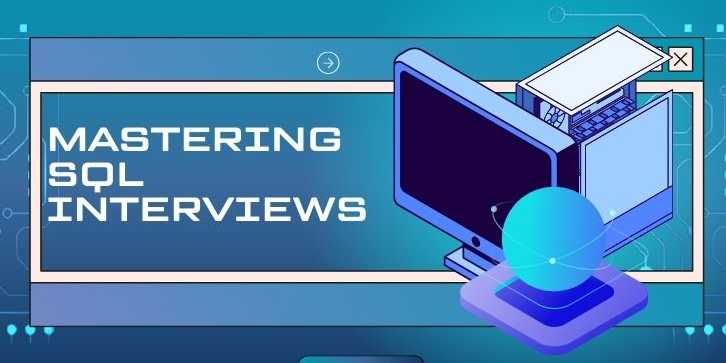Mastering SQL Interviews: Top 5 Commonly Asked Problems and How to Solve Them

Overview
📝 Introduction (500–600
words):
In today’s data-driven job market, SQL (Structured Query
Language) has emerged as a core skill for roles across data analysis, software
engineering, database administration, and backend development. Whether you're
applying for your first job or looking to switch companies, SQL interview
questions are almost guaranteed to pop up — especially when the role involves
working with data storage and manipulation.
The ability to write efficient and accurate SQL queries is a
major differentiator between candidates. Interviewers often assess not just
whether you can write a query that works, but whether you understand
performance considerations, edge cases, and relational logic. While SQL as a
language is relatively straightforward, the real challenge lies in translating
complex business problems into efficient queries.
In this article, we’ll break down the Top 5 SQL interview
problems that frequently appear during technical interviews. These aren’t
just random examples — they’ve been curated based on their popularity in tech
companies, online coding platforms, and real-world interviews. Understanding
these problems inside out will give you an edge and help you approach
interviews with more confidence.
Here’s what you’ll learn:
- The
structure and logic behind common SQL interview questions.
- How
to think through a problem and identify the correct approach.
- Query
optimization tips that might win you extra points in an interview.
- Mistakes
to avoid and best practices to follow.
These top 5 problems cover everything from finding
duplicates in a dataset to working with window functions and ranking systems.
You’ll encounter SELECT statements, GROUP BY, JOINs, CTEs (Common Table
Expressions), subqueries, and even a few tricky edge cases that trip up
candidates.
Whether you’re applying for roles such as a Data Analyst,
Business Intelligence Engineer, Backend Developer, or Database Administrator,
being comfortable with these types of problems can help you ace the SQL section
of the interview.
Each of the five problems we’ll cover includes:
- A
sample schema and data description
- The
problem statement
- A
clear solution with query and explanation
- Bonus:
common mistakes and tips
So, grab your favorite SQL editor, and let’s dive into the
most common — and most important — SQL interview problems you’re likely to
face. Practice them thoroughly, and you'll be surprised how much easier
interviews can get when you're well-prepared.
FAQs
1. What are the most commonly asked SQL questions in interviews?
Interviewers often ask about joins, groupings, window functions, subqueries, and ranking problems. These test both your understanding of SQL syntax and logic.
2. How should I prepare for SQL interviews?
Focus on solving real-world problems, practice on platforms like LeetCode or HackerRank, and understand how SQL is used in business scenarios.
3. Do I need to memorize queries or understand logic?
Understanding logic is more important. Interviewers prefer candidates who can reason through a problem over those who rely on memorized solutions.
4. Are window functions important for SQL interviews?
Yes. Functions like ROW_NUMBER(), RANK(), and DENSE_RANK() often appear in intermediate to advanced interviews.
5. What’s the best way to practice SQL?
Use real datasets, explore open SQL challenges online, and build your own problems from business scenarios.
6. Can I use aliases and CTEs in interview solutions?
Absolutely. Using aliases and CTEs can make your queries cleaner and more readable, which is often appreciated in interviews.
7. How do I handle NULL values in SQL queries?
Learn to use IS NULL, COALESCE(), and proper filtering logic to handle NULLs, as they can affect groupings and joins.
8. Are joins and subqueries tested frequently?
Yes. Inner joins, left joins, and subqueries are very common in interviews, especially when querying across multiple tables.
9. Is it okay to discuss multiple approaches in an interview?
Yes. Explaining both brute-force and optimized approaches shows depth in understanding and problem-solving.
10. How long does it take to get good at SQL for interviews?
With consistent practice, most people can get proficient in 2–4 weeks, especially if they focus on real interview problems.
Posted on 10 Apr 2025, this text provides information on Data Analyst. Please note that while accuracy is prioritized, the data presented might not be entirely correct or up-to-date. This information is offered for general knowledge and informational purposes only, and should not be considered as a substitute for professional advice.
Similar Tutorials

Mastering SQL Interviews: Top 5 Commonly Asked Pro...
📝 Introduction (500–600 words):In today’s data-driven job market, SQL (Structured Query Language)...



Comments(0)